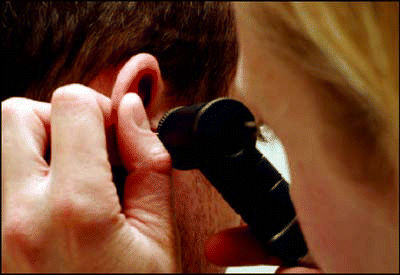TORONTO-Sudden sensorineural hearing loss (SSHL) has stumped otolaryngologists for decades. Despite much attention, even a definitive definition of the malady escapes researchers, making successful therapies even harder to uncover.
Explore This Issue
December 2006According to the National Institutes of Health (NIH), approximately 4000 new cases of SSHL occur each year in the United States. It can affect anyone, but for unknown reasons it happens most often to people between the ages of 30 and 60. In an effort to spur discussion and a possible movement toward consensus, an international panel gathered to examine the epidemiology of SSHL and discuss traditional treatment modalities at the recent American Academy of Otolaryngology-Head and Neck Surgery (AAO-HNS) annual meeting here.The experts also wheeled out some of the more promising research and cutting-edge treatment modalities available.

What Is SSHL?
While SSHL characterizations remain varied, the NIH defines the condition as an idiopathic hearing loss of sensorineural origin, greater than 30 dB in three contiguous frequencies that occurs in less than three days. Session moderator Commander Michael E. Hoffer, MD, of the Naval Medical Center in San Diego, said that, in addition, the root causes of SSHL could be broken into two separate types-idiopathic and direct effect.
Idiopathic represents all of the presumed causes that we can come up with, he said. Direct effect deals with things we know caused the hearing loss-largely loud noise, trauma, or toxins. Basically, someone gets blown up, they get a hearing loss and we know it was direct effect.
In the idiopathic camp, there are a number of possible causal ideologies at work-vascular, viral, genetic, lifestyle, and disease-related causes, Dr. Hoffer said. The vascular hypothesis comes from a Japanese study showing subjects had an increased incidence of SSHL when switching from a traditionally Japanese diet to an American diet.This showed promise at the time, Dr. Hoffer said, but when combined with other, similar research, it became clear that genetic causes were at play. He also said viral ideology research is conflicting and cannot be reproduced, but that he is still convinced there has to be some kind of infectious variable at work.
There is a strong link to the genetic and lifestyle ideologies and a much weaker one to viral and vascular, Dr. Hoffer said.
With regard to incidence and prevalence of direct effect SSHL, he said both were hard to quantify because the data are such that a reliable denominator is not available.
Leave a Reply